
The Promise of an Age-Friendly Ecosystem
Generations Journal, vol. 49, no. 1 (Spring 2025)
The articles in this issue were written prior to the sweeping changes made to federal and state health programs and reductions in the federal workforce. At time of publication, these programmatic changes are not complete, but the editors acknowledge that these significant changes may have a profound impact on the programs and services that serve older people, people with disabilities, caregivers, families, and communities across the country. Multi-sector collaborations and partnerships across the age-friendly ecosystem are now more important than ever.
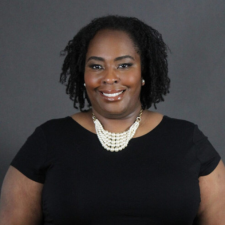
Guest Editor: Karon L. Phillips, PhD
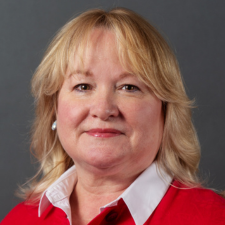
Guest Editor: Megan Wolfe, JD

Why Millions of Older Workers Depend on Medicaid to Survive
As Congress debates the future of Medicaid, millions of Americans—particularly older workers—face an uncertain future. Proposed cuts to Medicaid, combined with renewed efforts to impose work requirements in this program, threaten to strip away essential healthcare and long-term care coverage for those who need it most. Older workers would be hit especially...
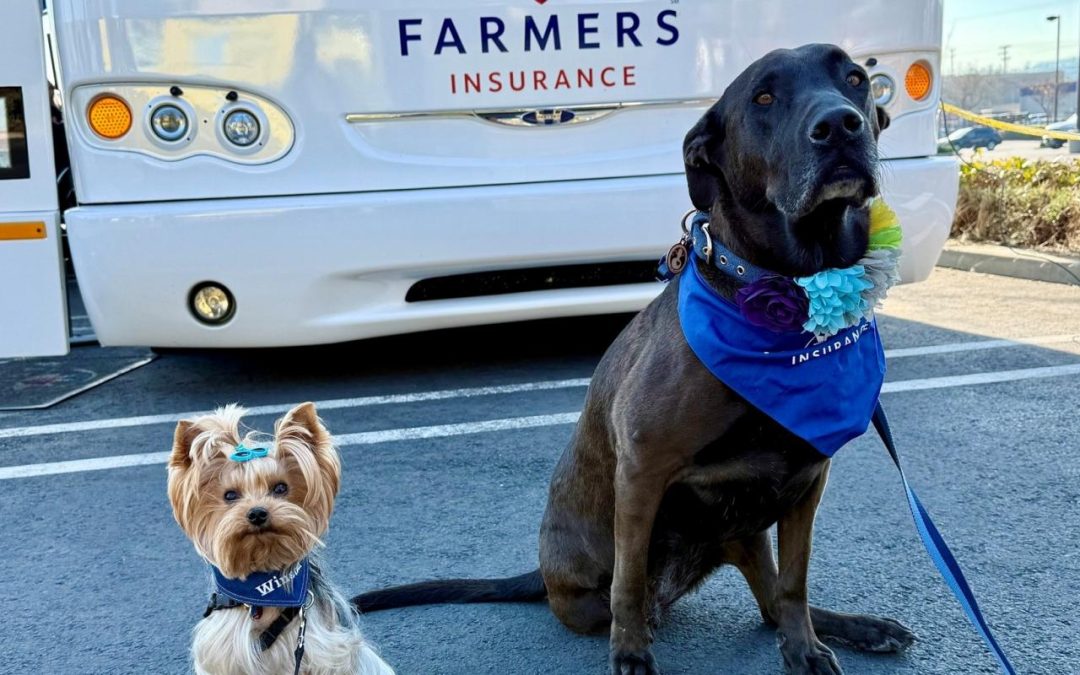
Pet Partners Volunteers Step in When Others Are in Crisis
At Pet Partners, we know that humans and pets share a deep, innate connection. Through this strong human-animal bond, we support millions of people each year. Whether it's lending a hand (and paw) during challenging times or participating in awareness and fundraising events such as our Pet of the Year event, Pet Partners volunteers are creating a happier...

From Hospital to Home: The Essential Role of Nutrition Plans at Discharge
Every year, older Americans are more than twice as likely to need hospitalization compared to middle age-adults. Alarmingly, many of these patients—20% to 50% are at risk of or are already experiencing malnutrition when admitted. During their hospital stay, up to 31% of malnourished patients and up to 38% of well-nourished patients may experience...

How Shifting DOT Funding Priorities Hurts Grandma, Grandpa and Their Families
A recent memo from Transportation Secretary Sean Duffy, instructing the Department of Transportation (DOT) to prioritize funding for communities with higher birth and marriage rates (the secretary has 9 children), fundamentally misunderstands how to best support today's multigenerational families. If implemented, the directive will not only hurt blue...

Strategies to Reduce Healthcare Cost Burden via Medicare Savings Programs
This article is based on a December 2024 issue brief by West Health and Aurrera Health Group, which partnered to identify state policy levers and strategies to increase access to and participation in Medicare Savings Programs. Read the full brief here. Healthcare affordability is out of reach for many in the United States, including older adults—many of...

On Homelessness, Housing and How We Got Here
Editor's note: The John A. Hartford Foundation, the Administration for Community Living (ACL) and The SCAN Foundation fund the Aging and Disability Business Institute, led by USAging. The mission of the Aging and Disability Business Institute is to build and strengthen partnerships between aging and disability community-based organizations (CBOs) and the...

Students’ First-Hand Experience in Collaborative Geriatric Care
As students walk into the dimly lit recreational room for their first housing visit, usually they are not too sure what to expect. Some have taken courses that breezed over sections on older adults or dedicated a small portion of the didactic material to aging-related diseases. But, for many, the next few months will be spent engaging in one of their first...

If Loneliness Is Equivalent to Smoking 15 Cigarettes a Day, Then Imagine This …
A nostalgic video transported me to the 1980s and 1990s, an era when smoking sections were commonplace in restaurants—a practice that feels unimaginable today. This memory sparked a question: What if, in the future, loneliness and polarization were just as unfamiliar to us as smoking indoors is now? Decades ago, research exposed smoking's devastating...

Diversity Among Grandparent Caregivers: What We Need to Learn
Abstract: This article examines the implications of prioritizing diversity among grandparent caregivers as a lens through which they can be better understood, with special attention to Black, Indigenous, and Persons of Color (BIPOC). Over the past few decades, the focus has been on Blacks and Hispanics/Latinos, with some work on Indigenous grandparent...
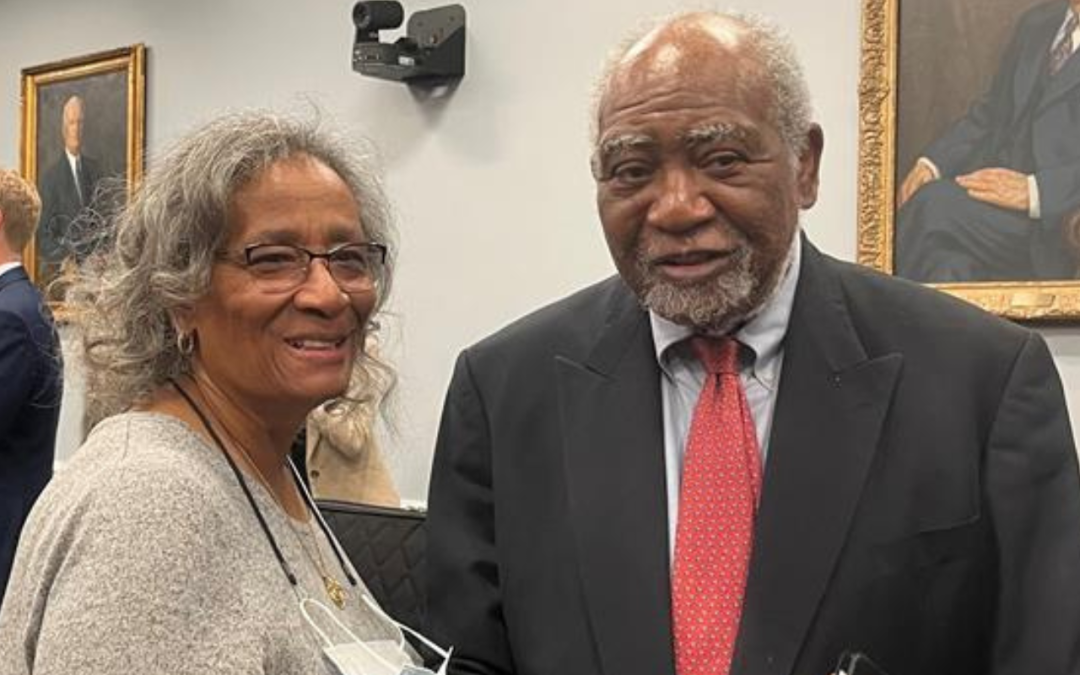
GRAND Voices—Powerful Advocates for Change
Abstract Engaging people with lived experience needs to be intentional and supported to be effective. For more than 10 years, Generations United's GRAND Voices Network has demonstrated the power and impact of meaningful engagement changing public policy and service delivery systems across the country. This article outlines essential components of a high...

Supporting Kinship Caregivers
Abstract This article describes Washington State's efforts to understand and support the needs of kinship caregivers through cultural adaptations, focusing on tribal and Latine communities. The state's Kinship Navigator Program history is described, as well as its statewide Pro-Active Equity Anti-Racism framework. Caregivers may be directed to local...

A Culturally Adapted Kinship Navigator Program
Abstract The Port Gamble S'Klallam Tribe (PGST) operates as a full-service government, including a child welfare system in the Children and Family Services (CFS) Department and a Kinship Navigator Program, the Kinship Parenting Program. That program works with kinship families living on the reservation and enrolled PGST members living off the reservation...

Empowering Grandparent Caregivers Via In-Person and Virtual Programs
Abstract Empowerment programs for grandparent caregivers can serve to support and enhance the roles of grandparents in the community and family. Traditionally such programs have been offered in-person, with the leader acting as facilitator. In 2021, in-person programs, first developed in 1998, were transformed into a virtual format, offered via Zoom, to...

‘Your Grandma Is Here for You’
Abstract This article explores how grandmothers raising grandchildren in skipped-generation households fostered their healthy social and emotional development by helping them cope with emotional difficulties from parental absence and presence, grandfamily stigma, and prior adverse experiences. Grandmothers helped grandchildren cope by assuring them they...

Getting Grandchildren Back on Their Feet
Abstract This article examines how grandmothers raising grandchildren in skipped-generation households tended to their grandchildren's physical development, including 1) treating illnesses and injuries; 2) alleviating malnourishment and teaching healthy eating habits; and 3) managing prenatal substance exposure. Children's physical needs often required...

‘I Wanna Put That Education in Them’
Abstract This article examines how grandmothers raising their grandchildren in skipped-generation households support their grandchildren's cognitive development across the life course, predominantly by prioritizing their education in daily routines and by communicating with, learning from, and advocating on behalf of their grandchildren with teachers,...

Skipped Generation Households: A Snapshot of Preface for Three Articles
Abstract Previous research has insufficiently investigated how grandparents in skipped-generation households (consisting only of grandparents and grandchildren) interpret and respond to children's social, emotional, cognitive, and physical developmental needs. This article provides an overview of the prevalence of children raised in skipped-generation...
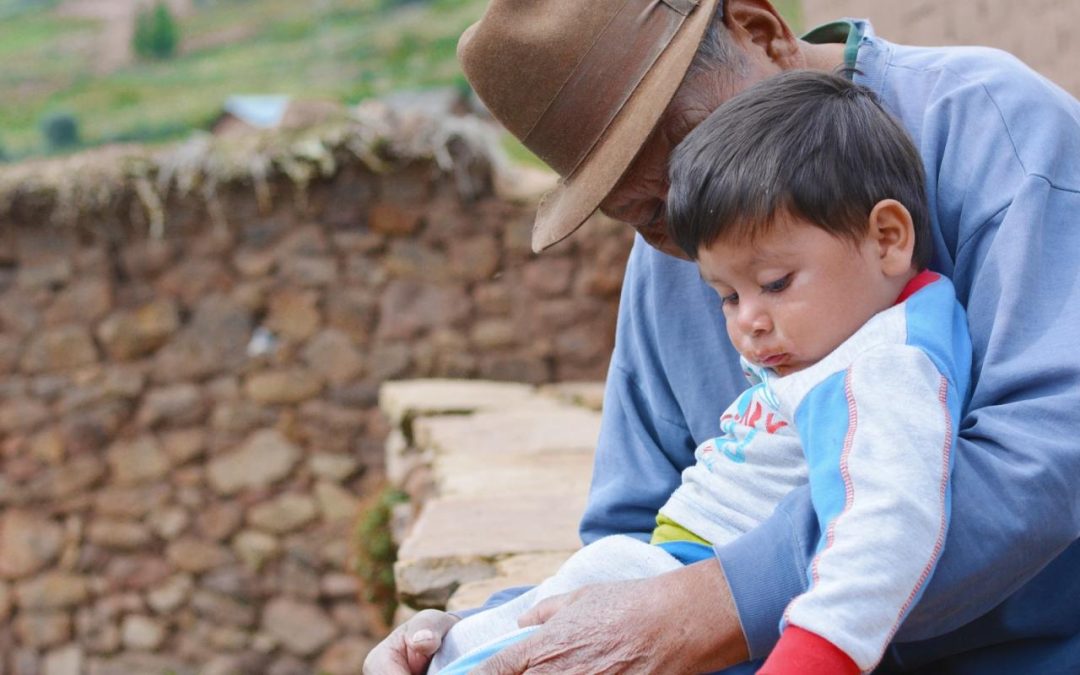
Keeping Families Together Via Better Guardianship Rules
Abstract In many BIPOC families, children spend significant periods under their grandparents' or other relatives' care. Minor guardianship can be an important legal mechanism, giving caregivers the legal status needed to serve as a substitute parent and provide stability for grandchildren, while avoiding the risks and uncertainty of the public child...

Getting By Is Not Enough
Abstract African American grandparents are an essential part of family stability. Yet too many skip-generation households must navigate care within the constraints of poverty and adverse childhood experiences (ACEs). They are called upon and expected to do more with less. This article discusses the importance of understanding the impact of poverty on...

Family Dynamics When Grandchildren Are Not Siblings: An Opening Discussion
Abstract This article draws attention to the influence of family composition among grandparent-headed families, and its likely impact on family functioning. In this instance, family composition refers to the number of members in a family unit and whether the grandchildren are siblings, cousins, or fictive kin relations. Researchers and practitioners can...
Staff
Editor-in-Chief: Leanne Clark-Shirley, PhD
Senior Editor: Alison Biggar
Issue Contents
Why Millions of Older Workers Depend on Medicaid to Survive
As Congress debates the future of Medicaid, millions of Americans—particularly older workers—face an uncertain future. Proposed cuts to Medicaid, combined with renewed efforts to impose work requirements in this program, threaten to strip away essential healthcare and...
Pet Partners Volunteers Step in When Others Are in Crisis
At Pet Partners, we know that humans and pets share a deep, innate connection. Through this strong human-animal bond, we support millions of people each year. Whether it's lending a hand (and paw) during challenging times or participating in awareness and fundraising...
From Hospital to Home: The Essential Role of Nutrition Plans at Discharge
Every year, older Americans are more than twice as likely to need hospitalization compared to middle age-adults. Alarmingly, many of these patients—20% to 50% are at risk of or are already experiencing malnutrition when admitted. During their hospital stay, up to 31%...
How Shifting DOT Funding Priorities Hurts Grandma, Grandpa and Their Families
A recent memo from Transportation Secretary Sean Duffy, instructing the Department of Transportation (DOT) to prioritize funding for communities with higher birth and marriage rates (the secretary has 9 children), fundamentally misunderstands how to best support...
Strategies to Reduce Healthcare Cost Burden via Medicare Savings Programs
This article is based on a December 2024 issue brief by West Health and Aurrera Health Group, which partnered to identify state policy levers and strategies to increase access to and participation in Medicare Savings Programs. Read the full brief here. Healthcare...
On Homelessness, Housing and How We Got Here
Editor's note: The John A. Hartford Foundation, the Administration for Community Living (ACL) and The SCAN Foundation fund the Aging and Disability Business Institute, led by USAging. The mission of the Aging and Disability Business Institute is to build and...
Students’ First-Hand Experience in Collaborative Geriatric Care
As students walk into the dimly lit recreational room for their first housing visit, usually they are not too sure what to expect. Some have taken courses that breezed over sections on older adults or dedicated a small portion of the didactic material to aging-related...
If Loneliness Is Equivalent to Smoking 15 Cigarettes a Day, Then Imagine This …
A nostalgic video transported me to the 1980s and 1990s, an era when smoking sections were commonplace in restaurants—a practice that feels unimaginable today. This memory sparked a question: What if, in the future, loneliness and polarization were just as unfamiliar...
Diversity Among Grandparent Caregivers: What We Need to Learn
Abstract: This article examines the implications of prioritizing diversity among grandparent caregivers as a lens through which they can be better understood, with special attention to Black, Indigenous, and Persons of Color (BIPOC). Over the past few decades, the...
GRAND Voices—Powerful Advocates for Change
Abstract Engaging people with lived experience needs to be intentional and supported to be effective. For more than 10 years, Generations United's GRAND Voices Network has demonstrated the power and impact of meaningful engagement changing public policy and service...
Supporting Kinship Caregivers
Abstract This article describes Washington State's efforts to understand and support the needs of kinship caregivers through cultural adaptations, focusing on tribal and Latine communities. The state's Kinship Navigator Program history is described, as well as its...
A Culturally Adapted Kinship Navigator Program
Abstract The Port Gamble S'Klallam Tribe (PGST) operates as a full-service government, including a child welfare system in the Children and Family Services (CFS) Department and a Kinship Navigator Program, the Kinship Parenting Program. That program works with kinship...
Empowering Grandparent Caregivers Via In-Person and Virtual Programs
Abstract Empowerment programs for grandparent caregivers can serve to support and enhance the roles of grandparents in the community and family. Traditionally such programs have been offered in-person, with the leader acting as facilitator. In 2021, in-person...
‘Your Grandma Is Here for You’
Abstract This article explores how grandmothers raising grandchildren in skipped-generation households fostered their healthy social and emotional development by helping them cope with emotional difficulties from parental absence and presence, grandfamily stigma, and...
Getting Grandchildren Back on Their Feet
Abstract This article examines how grandmothers raising grandchildren in skipped-generation households tended to their grandchildren's physical development, including 1) treating illnesses and injuries; 2) alleviating malnourishment and teaching healthy eating habits;...
‘I Wanna Put That Education in Them’
Abstract This article examines how grandmothers raising their grandchildren in skipped-generation households support their grandchildren's cognitive development across the life course, predominantly by prioritizing their education in daily routines and by...
Skipped Generation Households: A Snapshot of Preface for Three Articles
Abstract Previous research has insufficiently investigated how grandparents in skipped-generation households (consisting only of grandparents and grandchildren) interpret and respond to children's social, emotional, cognitive, and physical developmental needs. This...
Keeping Families Together Via Better Guardianship Rules
Abstract In many BIPOC families, children spend significant periods under their grandparents' or other relatives' care. Minor guardianship can be an important legal mechanism, giving caregivers the legal status needed to serve as a substitute parent and provide...
Getting By Is Not Enough
Abstract African American grandparents are an essential part of family stability. Yet too many skip-generation households must navigate care within the constraints of poverty and adverse childhood experiences (ACEs). They are called upon and expected to do more with...
Family Dynamics When Grandchildren Are Not Siblings: An Opening Discussion
Abstract This article draws attention to the influence of family composition among grandparent-headed families, and its likely impact on family functioning. In this instance, family composition refers to the number of members in a family unit and whether the...
Editorial Advisory Board
Ruth E. Katz, Chair
Wendy Lustbader, Immediate Past Chair
Tobi Abramson, PhD
Joe Angelelli, PhD
Orion Bell, MBA
Fayron Epps, PhD
Mary L. Flett, PhD
Sarah Galvan, JD
Robyn L. Golden, LCSW
Donna M. Lisi, PharmD
Heather Menne, PhD
Najja Orr, MBA, DBA
Winifred V. Quinn, PhD, FAANP, FAAN
Laura Trejo, PhD
ISSN 2694-5126
Suggested citation for articles in this issue: [Last Name(s), First Name(s)]. “Article Title.”
About Generations Journal
Generations Journal is the quarterly journal of the American Society on Aging. Each issue is devoted to bringing together the most useful and current knowledge about a specific topic in the field of aging, with emphasis on practice, research, and policy.
